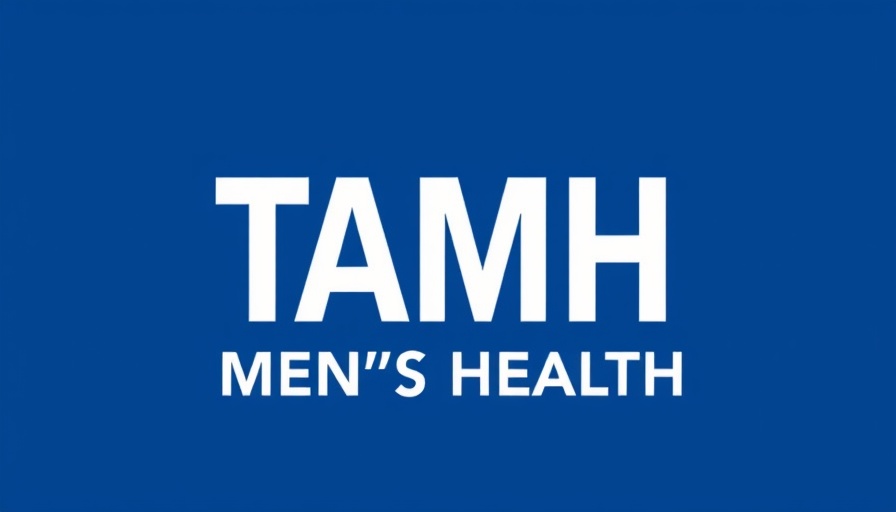
A Community Call to Action: Prostate Cancer Awareness Month 2025
Every September, individuals across the nation take a moment to reflect on an issue that affects countless families: prostate cancer. As we approach Prostate Cancer Awareness Month in 2025, the Men’s Health Network (MHN) is calling upon everyone—families, workplaces, and communities—to unite in promoting awareness, education, and support for this pervasive illness. Understanding prostate cancer not only empowers men to take charge of their health but also helps their surrounding networks to provide the necessary encouragement and understanding.
Understanding Prostate Cancer: A Closer Look
The prostate, a walnut-sized gland located below a man's bladder, plays a critical role in reproductive health. Prostate cancer emerges when abnormal cells grow uncontrollably within this gland. According to statistics, 1 in 8 men will be diagnosed with this type of cancer, and this year alone, it’s projected that 299,010 new cases will arise. Alarmingly, approximately 35,250 men lose their lives to it each year.
Certain demographics are at elevated risk. Black men, veterans, and those with a family history of the disease should engage in discussions about screening with their healthcare providers earlier than average: ideally beginning at age 40. Others may want to consider screenings starting at age 50, ensuring proactive care that could save lives.
Why Early Detection Saves Lives
Prostate cancer often develops silently, without noticeable symptoms in its initial stages. This insidious nature can cause many to feel they are in good health, only to discover later on that they have advanced cancer. Early warning signs include difficulties during urination, painful urination, and persistent discomfort in areas like the hips or back. As these symptoms can also arise from other health issues, a proper medical evaluation is crucial.
Rallying Together: The Importance of Community Support
While a prostate cancer diagnosis may start with one individual, its impact reverberates throughout families and friend groups. Awareness campaigns that focus on support networks can significantly empower men to prioritize their health. Loved ones, be it spouses, children, or coworkers, play a pivotal role in encouraging men to engage in preventative health measures and attend regular check-ups.
How You Can Make a Difference This September
For those eager to contribute during Prostate Cancer Awareness Month, MHN has crafted a useful toolkit aimed at facilitating community engagement. This digital media toolkit, available at menshealthnetwork.org/media-center, includes:
- Engaging graphics for social media
- Informative blog posts and newsletters
- Press release templates
- Unique event ideas tailored for schools and workplaces
By utilizing these resources, anyone can amplify the critical message surrounding prostate health and bring vital information to community awareness.
Fostering a Culture of Open Conversations
One of the most significant barriers to early detection is stigma and a lack of dialogue surrounding men's health issues. Encouraging fluid conversations within families and communities about prostate health can dismantle these barriers. When men feel encouraged to discuss potential health concerns openly, they are more likely to get screened and seek treatment.
A Bright Future: Your Role in Raising Awareness
In our shared journey towards understanding and combating prostate cancer, every small action contributes to a larger impact. By supporting each other, we can foster an environment where effective health discussions thrive, leading to earlier detection and lifesaving interventions.
This September, let us commit to not only spreading awareness but creating a culture of support for the men in our lives.
If you’re inspired to join the fight against prostate cancer, reach out to friends and family today to start meaningful conversations about health and well-being. Your voice can help change a life—let’s make it heard!
 Add Row
Add Row  Add
Add 



Write A Comment